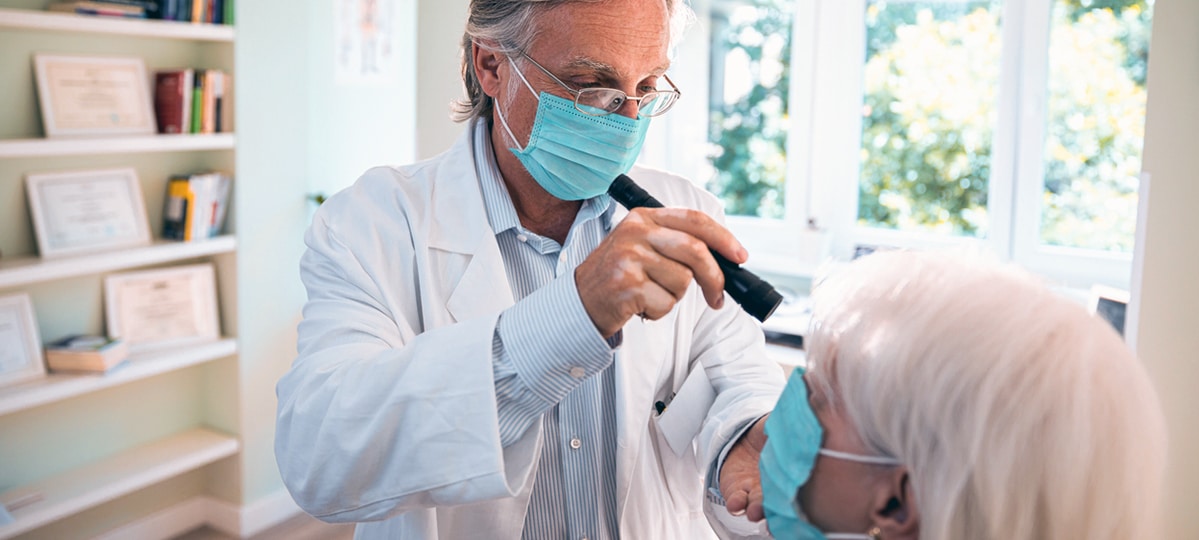As you get older, you may notice several changes to your vision, however, you should not allow these changes to affect your normal life. The first step towards avoiding that is to understand the conditions that affect your vision and seek professional help in advance.
As you approach your sixties, you need to be aware of the common signs of age-related eye problems that could result in eye loss. The challenge is some eye problems never show early symptoms. They can develop without you noticing until the problem has advanced.
Some of the ways to keep yourself safe include adopting a healthy lifestyle, regular eye eye-checks and early detection of the disease.
It is also important to note that other health problems affecting your body can affect your sight or vision as well. For instance, people suffering from hypertension or diabetes are at a greater risk of developing vision problems.
Common Causes of Vision Disorders
The following are five common conditions that can affect your ability to see properly.
Glaucoma
Glaucoma happens when the pressure surrounding the eye rises – which can cause damage to the optic nerves and lead to vision loss. Many people can suffer from glaucoma without realizing because it has no early symptoms. Those affected may experience their tunnel vision worsening if the condition is not treated early enough.
There are different treatment options for glaucoma. Nonetheless, medication alone might not work for some patients. Surgery will be required to effectively bring the eye pressure under control. Risk factors for glaucoma include family history, age and use of steroids medication.
Diabetes
Fluctuation in blood sugar levels can result in temporary vision changes. However, diabetes can easily cause serious eye problems if not properly controlled.
High blood sugar levels that occur for a long period cause damage to the tiny blood vessels that transport blood to your eyes – leading to a condition known as diabetic retinopathy. It is one of the leading causes of blindness in adults.
High Blood Pressure
High blood pressure is also known to cause changes in the retina. This condition is also referred to as hypertensive retinopathy. Similar to diabetes, high blood pressure can cause damage to fragile blood vessels that supply blood to the eyes.
A doctor can diagnose hypertension or high blood pressure during your regular eye examination. It is therefore important to manage your blood pressure in order to reduce the risk of developing vision problems.
Cataracts
A cataract is the clouding of your eye’s transparent lens. The lens usually consists of water and protein. If the protein masses together, it may obscure the penetration of light through the lens. If therefore the cataract gets worse and starts to affect your vision, surgery will be required in order to remove the cloudy lens and replace it with a good one.
People with cataracts will often complain about cloudy vision, glare or double vision. Old age is the number one risk factor for cataracts. Women are usually at a greater risk to have cataracts compared to men. In addition, people who smoke are also at a higher risk to develop cataracts than people who don’t smoke.
Macular Degeneration
Macular degeneration reduces your ability to see dramatically. The condition generally affects your central vision. Although macular degeneration might not cause complete blindness, people suffering from it may face difficulty in reading, driving and performing other normal activities.
There are usually no visible symptoms during the early stages of macular degeneration. Your central vision will at some point get blurry or wavy and disappear completely when the condition reaches an advanced stage. Old age is a bigger risk of macular degeneration.
Vision Disorders and Fall Risks
Poor vision may increase your risk of falls by preventing you from seeing obstructions in your path. With Fall Detection technology, your Medical Alert system senses a fall and contacts you through the two-way voice system so you can speak with an operator. If you are unable to respond, we dispatch emergency services to your location.
In a nutshell, it is always important to know some of the conditions that are risky to your eye vision. A regular eye exam will help in diagnosing conditions that may be affecting your vision.




